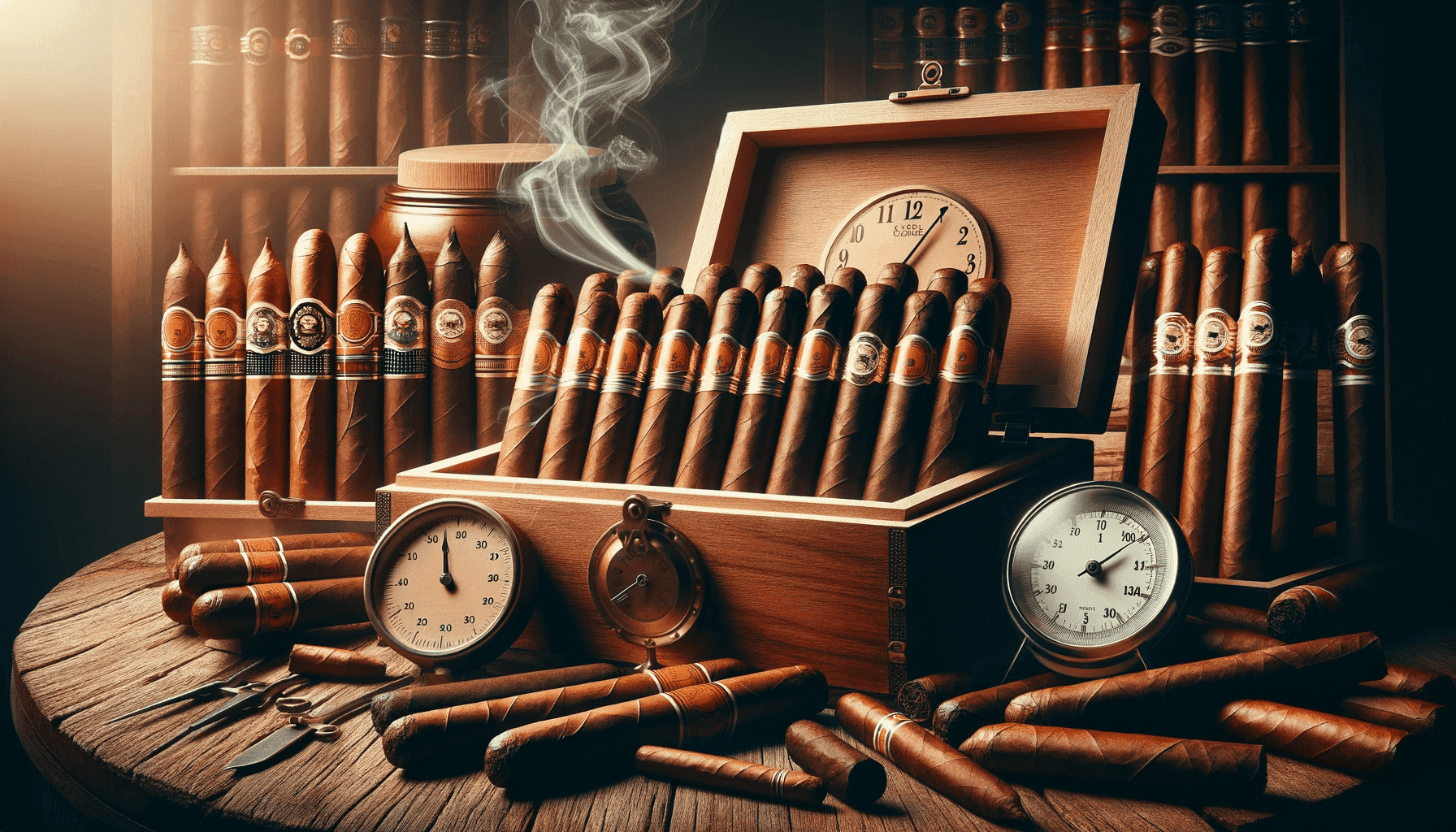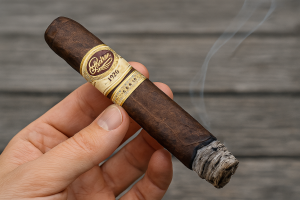How Long Does Cuban Cigars Take to Age: Optimal Aging Conditions

There is an undeniable allure and elegance that comes with smoking a well-aged Cuban cigar. For enthusiasts and connoisseurs, the complexity and depth of flavors found in aged cigars make them a true pleasure to savor.
In this article, we will delve into how long do Cuban cigars take to age, exploring the key stages and the ideal conditions for achieving the perfect puff.
- Periods for Each Aging Stage of Cuban Cigars
- Optimal Aging Conditions
- How Aging Impacts Flavor and Smoking Experience
- Conclusion
Periods for Each Aging Stage of Cuban Cigars
During the initial stage of aging, which normally lasts a few months, the flavors of the cigar begin to mature and blend. The initial pungent taste of a young cigar gradually gives way to a smoother and more refined profile. Any excessive bitterness from the tobacco also subsides during this stage, allowing the flavors to shine.
Development and Maturity
As time goes on, the flavors in a well-aged Cuban cigar continue to evolve and develop. This stage can last several years and is characterized by the melding of flavors and the development of complex aromas. The cigar becomes smoother and gains depth, providing a fuller smoking experience. Regular monitoring is important during this stage to ensure the cigar reaches its peak maturity.
Peak of Perfection
After years of aging, a well-aged Cuban cigar reaches its peak of perfection. At this stage, the flavors have fully integrated, achieving a harmonious balance. The cigar offers a wide range of complex undertones, from woody and earthy notes to hints of nuts and spices. These highly coveted aged cigars are considered the epitome of smoking pleasure by cigar aficionados.
Optimal Aging Conditions
Achieving the optimal aging conditions for Cuban cigars involves proper temperature and humidity control. The recommended temperature range for aging cigars is around 65-70 degrees Fahrenheit (18-21 degrees Celsius).
Similarly, maintaining humidity levels between 65-70% is crucial, as excessive moisture can cause mold and tobacco degradation, while low humidity can dry out the cigars. Specialized storage solutions like humidors help maintain these conditions consistently.
Length of Aging
There is no definitive rule on how long a Cuban cigar should be aged as it ultimately depends on personal preference. However, experts suggest a minimum aging period of one to two years to allow the flavors to develop and mature.
Some aficionados prefer cigars aged for five years such as Cohiba Magicos. Others prefer cigars that are aged even longer, as this allows for further complexity and refinement. It's a personal journey of exploration and experimentation to find the ideal aging length for your taste.
How Aging Impacts Flavor and Smoking Experience
As Cuban cigars age, their flavor profiles experience a delightful transformation, especially for the highest-quality cigars. Initially, the pungent and sharp flavors mellow, giving way to more nuanced undertones.
Notes of wood, earth, and nuts become more pronounced, providing a richer and more complex smoking experience. The texture of the cigar also evolves, becoming smoother and silkier, enhancing the overall enjoyment. When a Cuban cigar is properly aged, the flavors are well-balanced and harmonious, offering a truly exceptional and memorable smoke.
Conclusion
Aging Cuban cigars is an art that requires patience and diligence. But how long does Cuban cigar take to age?
Firstly you must know that it is the process through which cigars develop their unique flavors, aromas, and textures. By understanding the key stages of aging and creating optimal storage conditions, enthusiasts can unlock the full potential of their Cuban cigars.
Whether you prefer a few years of aging or a more extended period, the journey of exploring and discovering the perfect age for your cigars is part of the pleasure. So, sit back, relax, and enjoy the rich flavors of a well-aged Cuban cigar.















